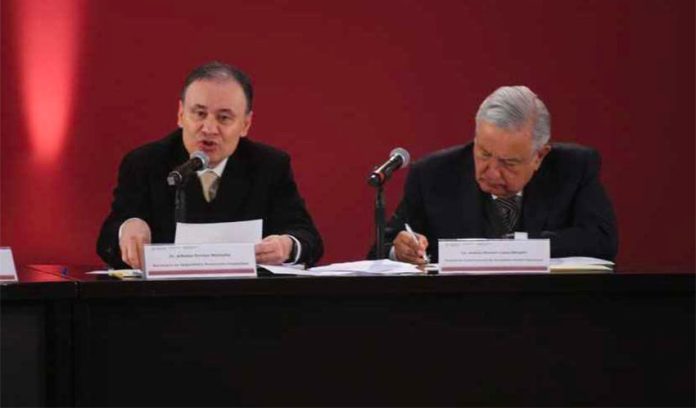A new federal government report reveals that large numbers of Mexico’s police are uncertified and poorly paid, and that every state force in the country is short on numbers.
Presented by Security Secretary Alfonso Durazo on Tuesday, the report shows that at the end of September, only 12 of Mexico’s 32 federal entities had police forces in which more than half of the officers were certified.
Certification is conferred on officers who have passed confidence tests, completed initial training and are performing to their expected level.
Of the 20 entities where fewer than half of police officers were certified, Jalisco was in the worst position. Just 2.7% of its state police were certified at the end of September.
Fewer than 15% of police in state forces in Tlaxcala, Baja California Sur and Mexico City were certified, while in Puebla, Sonora, Nayarit, Chiapas and Guerrero, fewer than 30% of officers are qualified.
At the other end of the scale, more than eight in 10 state police in Baja California, Guanajuato and Colima were certified, while 96.4% of officers were certified in Querétaro, the highest of any state.
Stressing the importance of certification, Durazo said it wasn’t possible to combat organized crime with “uniformed crime.”
President López Obrador suggested that cleaning up state forces was needed to get rid of corrupt and uncertified police.
The federal report also revealed that police in five states are paid less than 10,000 pesos (US $525) per month on average.
Officers in Tabasco were the worst paid at the end of September, receiving average monthly salaries of 6,331 pesos.
Officers in Oaxaca earn 8,598 pesos a month, while those in Baja California Sur, Tlaxcala and Mexico City make between 9,200 and 9,900 pesos. Police in most states earn between 13,000 and 18,000 pesos.
San Luis Potosí police were the best paid in the country, earning 21,090 pesos a month on average, followed by those in Sonora, who earn 19,687 pesos. Guanajuato Governor Diego Sinhue announced last week that police in his state will receive salaries of 24,400 pesos per month starting in January, which will make officers there the best paid in the country.
The report also showed that every state police force in the country has fewer officers than it should based on international per-capita standards. Baja California and Sinaloa have the biggest shortfall: both have 2.6 fewer officers per 1,000 residents than they should.
Only Mexico City’s force has more officers than those recommended by international standards.
López Obrador said that federal authorities are working on a plan to improve police salaries at the state and municipal levels and address the officer shortfall.
Meanwhile, Durazo acknowledged on Wednesday that 2019 has been a “difficult year” in terms of security, explaining that the government has not achieved the results it would have liked.
“However, we’ve substantively improved the instruments of the state to combat insecurity and without them it would be impossible to aspire to guaranteeing adequate conditions for peace in the short term,” he said.
Official statistics show that Guanajuato has been the most violent state this year, with more than 3,000 intentional homicides.
Murder numbers increased in 16 states, including Mexico City, Jalisco, Nuevo León and Michoacán, but went down in the other 16.
Among the states with fewer homicides this year than 2018 are Quintana Roo, Oaxaca, Guerrero, Baja California, Baja California Sur and Tamaulipas.
Source: El Economista (sp), Milenio (sp)
